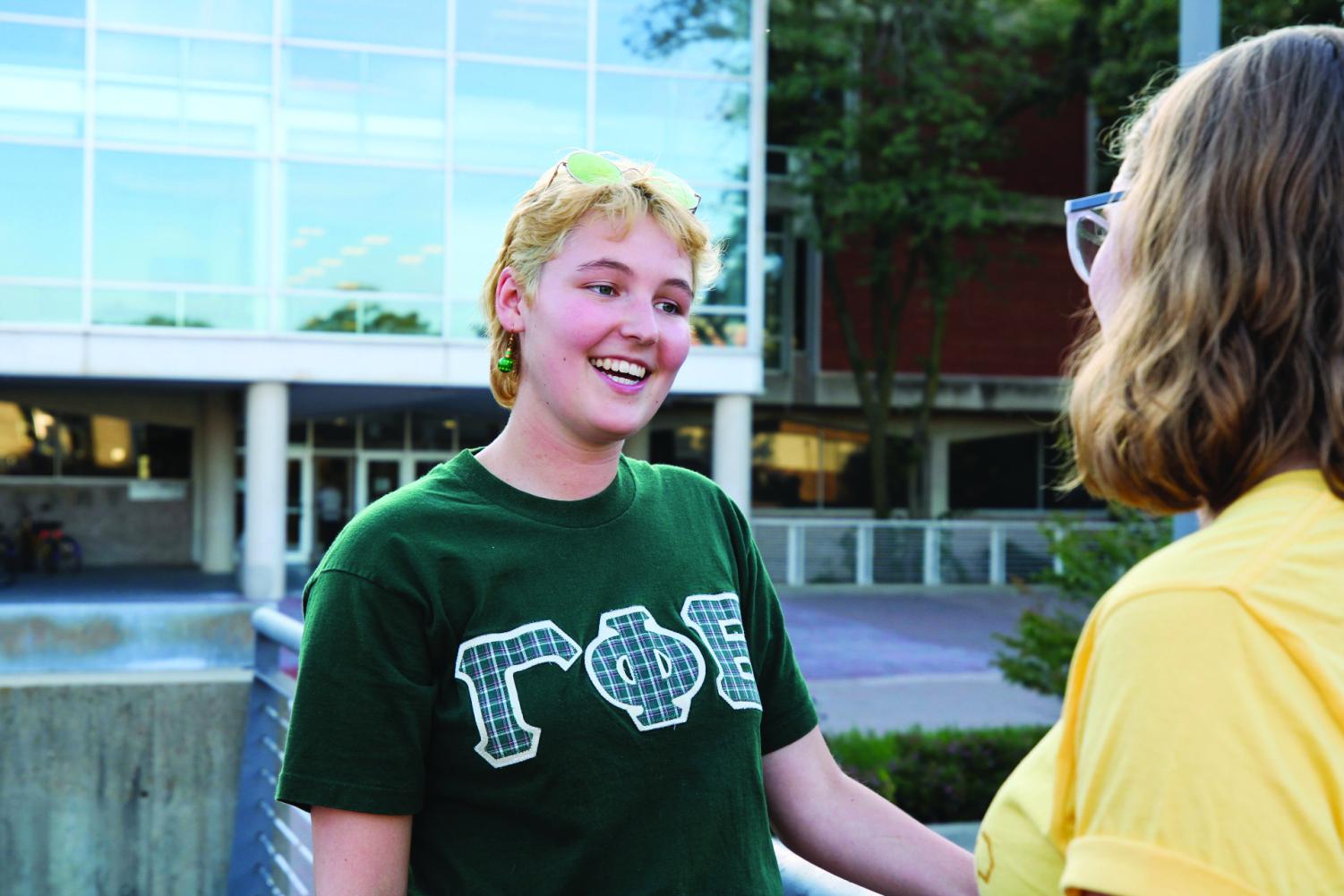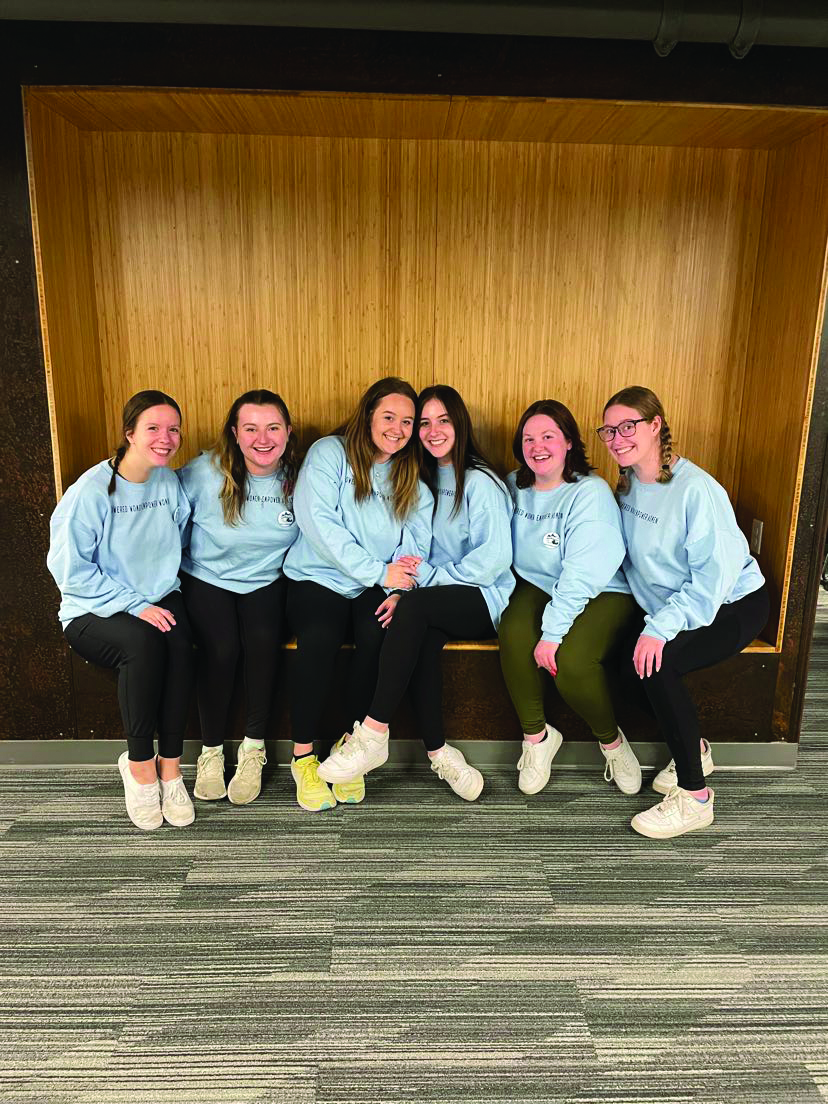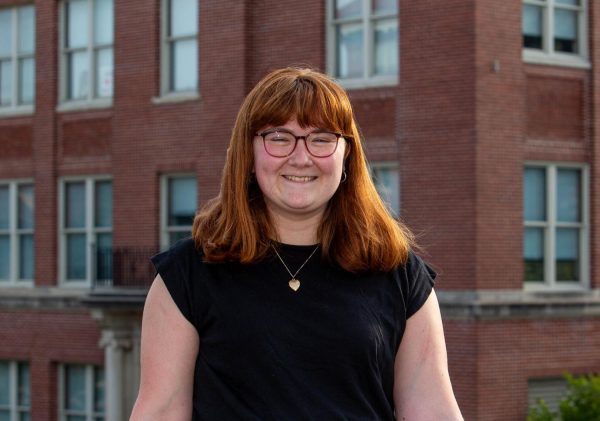A space of their own: UNI’s sorority leaders honor over a century of tradition
Mar 22, 2023
UNI student Cassie Williams has always known that she wanted to be part of a sorority. However, starting with those first days of recruitment her freshman year, she stumbled across a community at UNI with stronger bonds, deeper roots and vast opportunities beyond what she initially expected.
“Running home on bid day was probably the first time at college that I felt like I knew where I’m fitting in. I know who my people are,” Williams said. “I think that has just provided me with the best sense of belonging.”
That desire for belonging is exactly what brought sororities to college campuses in the first place. Ana Muell is the current president of UNI’s Panhellenic Council, a six-member student board that oversees sorority life as a whole on campus.
“The first women who were able to attend college are the ones that created sororities,” she said. “[Sororities] were initially places where women could be safe, and women could get together and talk about things that they wanted to talk about in a place that was not a man’s space.”
UNI’s first sorority, Sigma Phi, was formed in 1896. It merged with another local sorority in 1918 before becoming nationally affiliated with Alpha Chi Omega in 1968. While Alpha Chi Omega is one of five national sororities that are no longer active at UNI, women today can participate in any of the six existing sororities on campus. They include five National Panhellenic Conference sororities and one cultural sorority, Lambda Theta Alpha Latin Sorority.
In creating a space for belonging, early sorority leaders also created a space for growth. Williams has progressed from being just a sorority member to being co-vice president of recruitment in UNI’s Panhellenic Council.
“I had never been a leader in high school or before college, so sorority life was the first time I even considered stepping into a leadership position, and it was because my sorority sisters and other people in the community told me ‘you should run for co-VP of recruitment, I think you’d do a really good job.’ And that was the first time I really felt empowered to do something like that,” Williams said.
Laura Harms, the other co-vice president of recruitment, has had a similar experience through Greek life.
“If I would’ve gone back, I would’ve never expected to ever get as much out of it as I did,” Harms said.
“I have been given endless, endless, endless leadership opportunities, and they continue to arise, and I have grown tremendously as a leader since joining sorority life here on campus,” she said.
While all three women interviewed spoke of their rich and positive experiences in Greek life at UNI, it hasn’t been without its struggles. Muell first joined her sorority during the COVID-19 pandemic, the effects of which are still being felt by many student organizations on campus, fraternities and sororities included.
According to UNI Fraternity & Sorority Life academic reports, in fall 2019 before the pandemic, 309 women were active in sororities on campus, equating to 6.22% of female students on campus.
In comparison, according to Muell, as of Jan. 31, 2023, UNI’s sororities had approximately 147 active members, which amounts to about 3% of the female full time undergraduate student population.
In addition, last semester saw the permanent departure of Pi Kappa Alpha fraternity from UNI’s campus due to a lack of new members, showing the large effects low recruitment can have on Greek organizations.
As a response to lower participation due to the effects of the pandemic and decreasing enrollment at UNI, Muell says that her and the Panhellenic Council are taking steps to increase engagement.
“Right now we’re working on changing a couple things, especially internally, because we’ve started to realize that as much as recruitment is a problem, retention is also a problem for us,” she said.
In addressing retention, Muell said that the current council has been working to host more all-sorority events to help bring the community together. In addition, individual chapters have been working on addressing their own internal problems.
“It’s a long-term thing. It really is, but I think that there are steps that we can take to try and start that change and turn our community into more of a community again, post-covid,” she said.
However, sororities with smaller member populations aren’t always a bad thing. For Harms and Williams, UNI’s small sorority community compared to other universities is part of what makes the experience so special.
“I think sometimes looking from the outside in, you see all of these different chapters, but truly the community is so close-knit, and we are all constantly supporting each other,” Harms said. “I consider everyone in the community to be my friend one way or the other. Even if we haven’t talked one-on-one, there’s some type of connection there.”
Williams added, “There’s a lot of stereotypes surrounding Greek life, and I get where a lot of them come from, especially from bigger universities and southern universities especially. At UNI, rather than having 200 people in one sorority where there’s no way that you can get to know everybody, we have 30 or so members in each chapter, so you can get really close to everybody.”
Despite how much sorority life has changed since 1896, the leaders of today want to keep the vision of their founders alive.
“I sometimes think back to our founders and all the things that they probably had to go through, and I am so grateful that they did that,” Muell said. “I can’t even imagine what life would be like if we hadn’t had those spaces to be safe when we were first attending college, and I’m so grateful that they were able to do that and able to create this amazing thing that I get to be a part of now.”
Harms took a similar stance saying, “I appreciate everything that the sorority life community has done and everything it continues to do because each day we are challenging ourselves and our ideas, and I think that is such a huge part of women’s history, is continuing to challenge your ideas and not just staying comfortable. I think sorority life is the perfect stepping stone onto just that.”
“We’ve continued to not stay comfortable and continue to grow and push ourselves and take advantage of those opportunities that sometimes are even harder to take on because they may be so big,” she said. “But when you push yourself, you get into these amazing positions. Me pushing myself to interview for a Panhel position was scary, but it has been the most rewarding opportunity, and I’m becoming the person that I am today because of it.”












